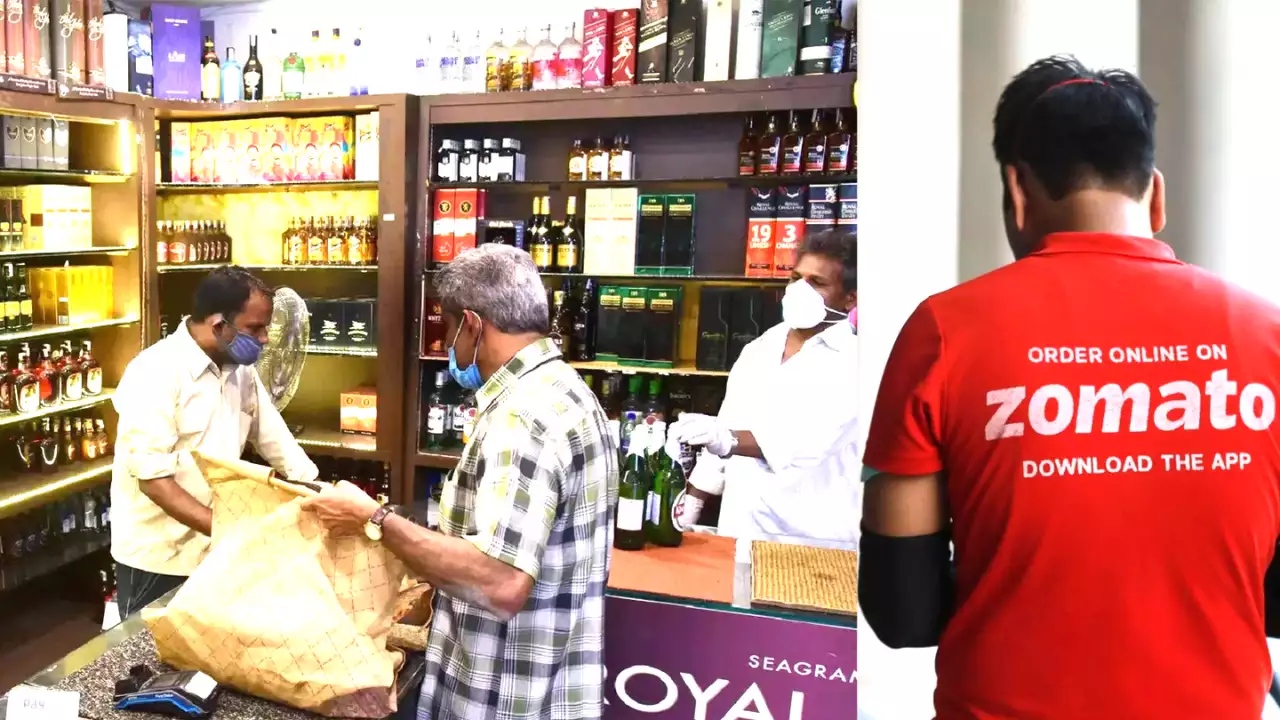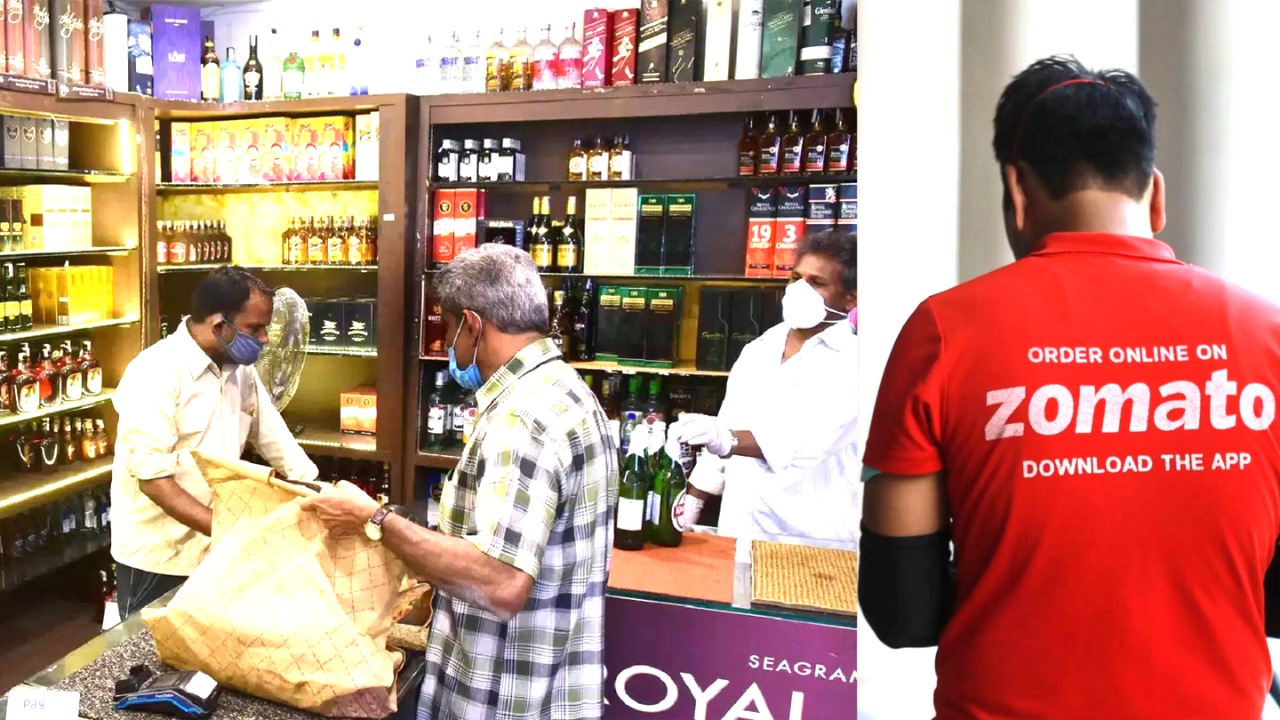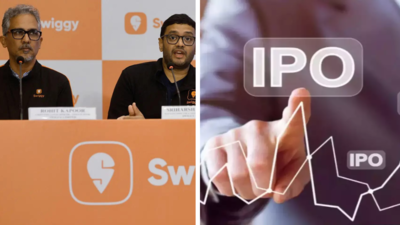Several states including Delhi, Karnataka, Tamil Nadu may get liquor home delivery: Report

[ad_1]
NEW DELHI: Several states in India, including New Delhi, Karnataka, Haryana, Punjab, Tamil Nadu, Goa, and Kerala, are exploring pilot projects to allow home delivery of liquor through online platforms such as Swiggy, BigBasket, Zomato, and its Blinkit quick-commerce arm. The initial focus will be on low-alcohol drinks like beer, wine, and liqueurs, according to industry executives familiar with the developments, as reported by the Economic Times.
Dinker Vashisht, vice-president of corporate affairs at Swiggy, mentioned in the report, “Online models ensure end-to-end transaction records, age verification and adhere to limits.Further, online tech stacks synchronise with regulatory and excise requirements, ensuring adherence to timings, dry days and zonal delivery guardrails.”
During the Covid-19 lockdowns, deliveries were temporarily allowed in Maharashtra, Jharkhand, Chhattisgarh, and Assam with restrictions. However, legitimate deliveries of alcobev are not currently permitted in these states, although a few local online platforms continue to deliver, particularly in Maharashtra.
The state authorities are seeking input on the advantages and disadvantages of online delivery from ecommerce platforms and spirits manufacturers. “This is to cater to a growing expat population especially in larger cities, changing profiles of consumers who perceive moderate alcohol-content spirits as recreational drinking along with meals, and women and senior citizens who have flagged buying from traditional liquor vends and shop-front experiences as unpleasant,” the report said citing an official. Currently, home delivery of alcohol is permitted in Odisha and West Bengal.
Rahul Singh, chief executive of pub chain The Beer Cafe, said, “By enabling online home deliveries of liquor, states can enhance consumer convenience, drive economic growth, and align with global trends while ensuring responsible and regulated alcohol distribution.” An unnamed executive cited earlier added, “Apprehensions about unchecked selling online too have been found to be unwarranted since checks include mandatory eKYC, upper caps on purchases, OTP verifications between stores, delivery executives and customers.”
Singh further emphasised, “Delivery services can implement strict age verification and compliance measures, potentially offering more cont rolled and regulated sales than traditional retail outlets. This can help prevent underage drinking and ensure responsible consumption.”
Dinker Vashisht, vice-president of corporate affairs at Swiggy, mentioned in the report, “Online models ensure end-to-end transaction records, age verification and adhere to limits.Further, online tech stacks synchronise with regulatory and excise requirements, ensuring adherence to timings, dry days and zonal delivery guardrails.”
During the Covid-19 lockdowns, deliveries were temporarily allowed in Maharashtra, Jharkhand, Chhattisgarh, and Assam with restrictions. However, legitimate deliveries of alcobev are not currently permitted in these states, although a few local online platforms continue to deliver, particularly in Maharashtra.
The state authorities are seeking input on the advantages and disadvantages of online delivery from ecommerce platforms and spirits manufacturers. “This is to cater to a growing expat population especially in larger cities, changing profiles of consumers who perceive moderate alcohol-content spirits as recreational drinking along with meals, and women and senior citizens who have flagged buying from traditional liquor vends and shop-front experiences as unpleasant,” the report said citing an official. Currently, home delivery of alcohol is permitted in Odisha and West Bengal.
Rahul Singh, chief executive of pub chain The Beer Cafe, said, “By enabling online home deliveries of liquor, states can enhance consumer convenience, drive economic growth, and align with global trends while ensuring responsible and regulated alcohol distribution.” An unnamed executive cited earlier added, “Apprehensions about unchecked selling online too have been found to be unwarranted since checks include mandatory eKYC, upper caps on purchases, OTP verifications between stores, delivery executives and customers.”
Singh further emphasised, “Delivery services can implement strict age verification and compliance measures, potentially offering more cont rolled and regulated sales than traditional retail outlets. This can help prevent underage drinking and ensure responsible consumption.”





